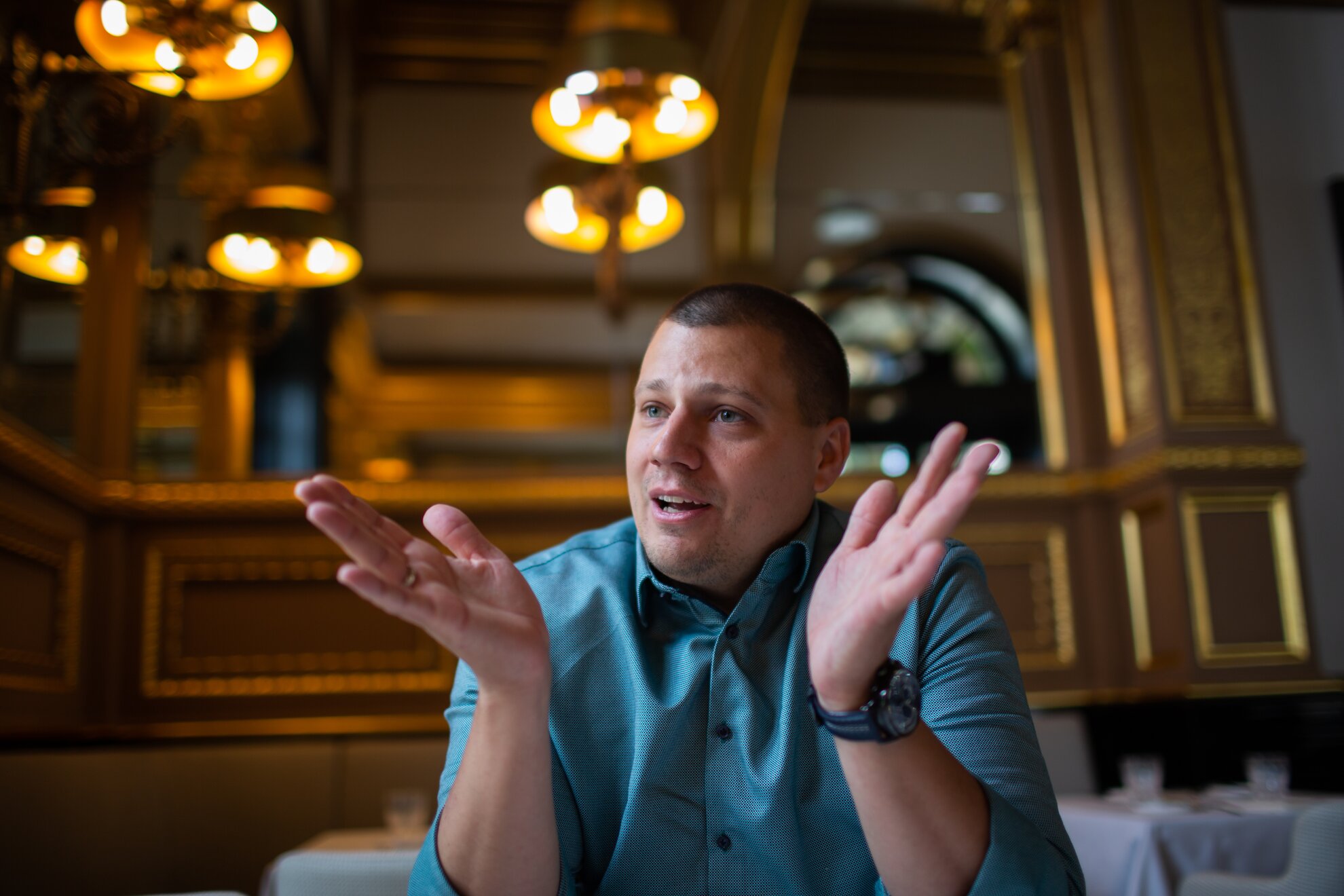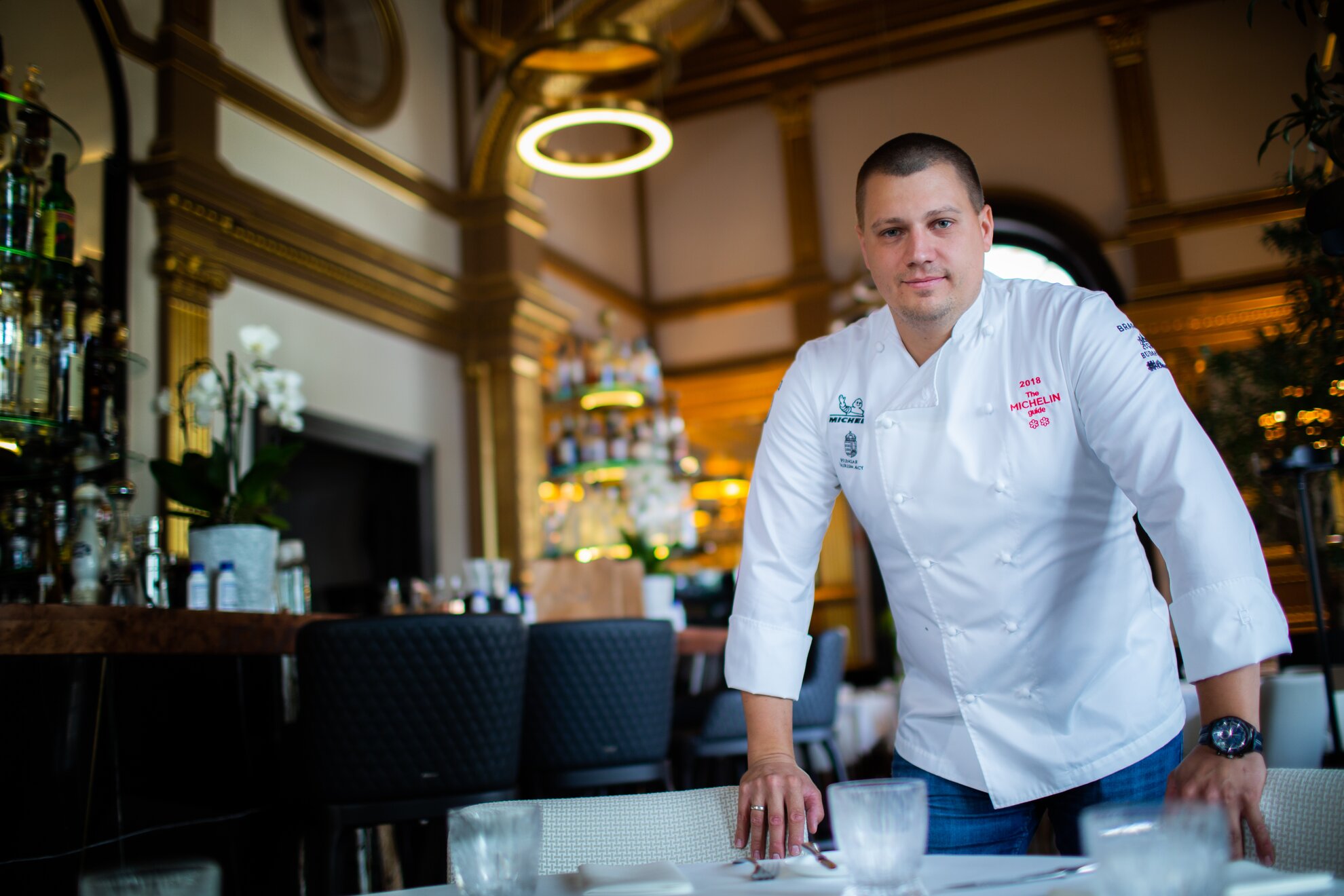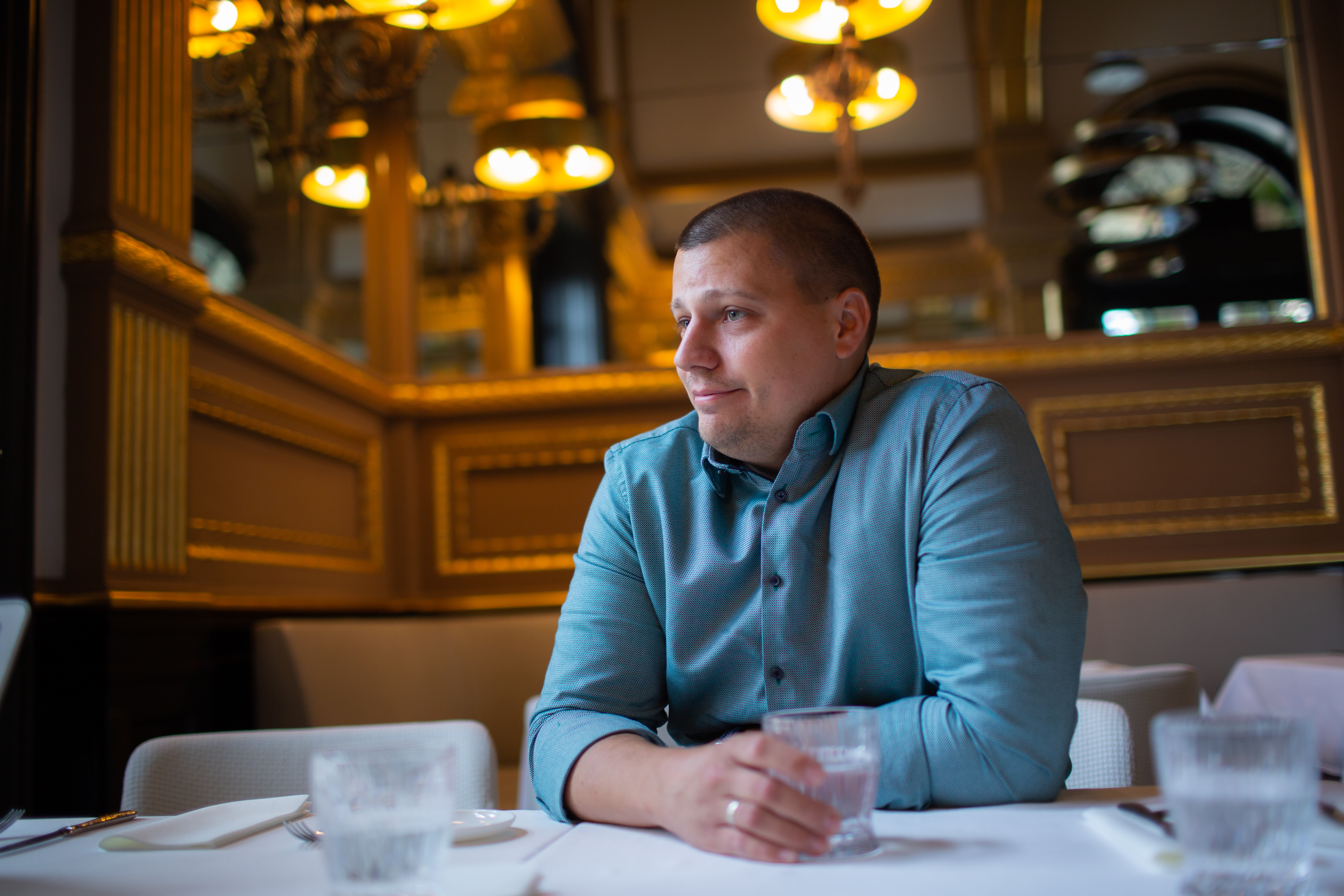
We Love Budapest: You started at Onyx under Tamás Széll, then moved higher up the ladder until, finally in 2018, Onyx received a second Michelin star under your culinary direction – which managed to retain in 2019. Why have you decided to move on?
Ádám Mészáros: You should know that this idea came about before, and has nothing to do with the current situation. Four or five months ago, we were constantly mulling over whether we could grow together at Onyx, or whether the goals I wanted were just my goals. I was looking for new challenges that I may not have had the chance to explore at Onyx, and I think the desire to meet them is the driving force behind everything. Getting better every day is a very important motivation: there is no such thing as something being done and dusted, that way we give up striving for improvement. It was important to look for an ownership group and team where what they wanted in the long term was equally important.

WLB: What does it look like in practice when the chef of a two-star restaurant is looking for a job?
ÁM: When me and the Gerbeaud team behind Onyx were both approaching the end of the road, it was a very difficult moment. We went through a whole range of emotions as we closed the book on nine years, leaving behind the successes we had shared together. Thank God, we were able to do this by keeping the atmosphere friendly to this day. Once they knew of my decision, we started working with a creative team to put more focus on their own work. And this was necessary to signal to other groups or teams that I actually wanted to continue under the auspices of another organisation.

WLB: Why did you choose the Felix Kitchen & Bar team in the end?
ÁM: There was a conversation, and it became completely clear to me that the kind of creative values, the behaviour, the way of thinking that I represent, was present there as well. I was happy to get into the operation quickly, where all the conditions were in place for us to create together for the long term. How does this look in practice? To create the kind of restaurant that can be judged by international standards. Obviously, that’s not the be all and end all, and it doesn’t have to define the everyday life of a restaurant because you can't just work your fingers to the bone for that alone. If you put everything into that and dedicate every moment to it, other important things fall by the wayside, and that’s what we all need to keep in focus – even though the priority should be the guest sat at the table.
Fortunately, there are more and more chefs in the country who have this sense of mission and drive, not only the looking to gain a star but continuous improvement. There is a lot of mission awareness in this profession, from the need to research the raw ingredients, to keeping in touch with producers, all the way to the final touches on the plate just before it leaves the kitchen. It is often said that there’s a problem with Hungarian ingredients – although, actually, there isn’t a big problem, it's just that supply is a bit hectic. But the more chefs who take greater care over domestic ingredients, the better the chances of producers being able to deliver the expected quantity and quality throughout the year. So making the guest feel good is the end result of a long process – but it’s essential that chef and owner set the same goals.

WLB: What do you expect from the new group in the long run?
ÁM: The main task is to further the creative development of the kitchens in the company group. There will be a new project that also ties in with this main activity, but I can’t tell you any more about the details just yet.
WLB: Felix is pretty high-standard already – will it be your job to raise this even higher?
ÁM: Whether you’re talking about fine dining or a bistro, any place always has room to develop within its own category. This is not the job of one person, but a team, as a lot of people work to keep innovation going. Anyway, yes, in the case of Felix, it’s important that raising the standard should be a continuous process, but here I will be working with the team in place and my task will be more about creative direction.

WLB: You used to spend 12 hours a day in the kitchen, by the stove, if you like. Won't you miss this?
ÁM: Sure, I’ll really miss the daily buzz around the kitchen. That’s why we discussed that here at Felix I should have my own little kitchen where I can experiment for at least one or two, maybe three days a week, on top of my creative tasks. The kitchen is my livelihood. This is something I’ve always stressed and this is how I’ve lived my life. I’ve always been very professional, and I think a successful kitchen can only be created if the leader puts in 110% and gives himself to it. My kitchen will be here so that I can actually be creative, develop recipes, try things out, and from here they can be put together into one thing. This is also important so that a cast-iron guaranteed recipe can be given to any production team, because it doesn’t matter if it’s fine dining or a bistro kitchen, it only makes sense if we can produce consistently good quality.

WLB: What do you think will be the fate of fine dining after the crisis?
ÁM: It will recover slowly, but not only in Budapest, but also in the wider world. Travel may not be the most important thing right now. I think there will be a demand for fine dining, but different than before. Places should take the time to work out how they operate, making plans for one to two years.
WLB: If you won the lottery and could open any type of place, what would it be?
ÁM: Nice dream. I would probably open a farm-to-table-like place, that’s something close to my heart. Somewhere on the outskirts, in the suburbs. Many chefs love to create surrounded by nature, and that’s no accident. I feel close to nature, too: colours, shapes, fresh, special ingredients can be amazingly inspiring. My own fireplace, oven, a simpler menu with excellent ingredients and possibly accommodation.
WLB: When the crisis is over, which kinds of places do you think will recover quicker than others?
ÁM: Well thought-out ones based on decent raw materials, bistro in variety, working with high-quality ingredients, attracting Hungarian guests.




